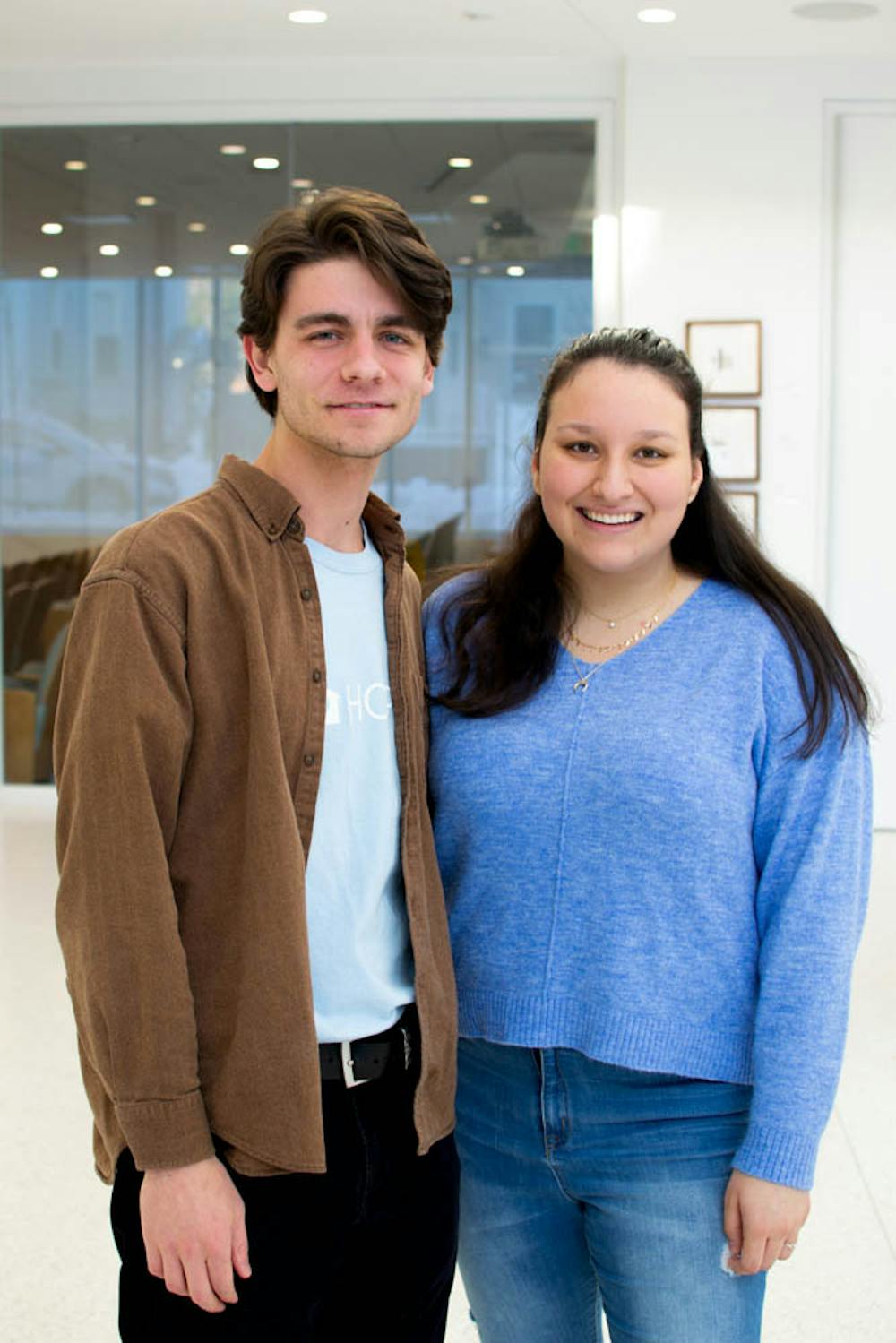Rose Lang-Maso ’20 and Nathaniel Pettit ’20 were chosen as finalists for the Harry S. Truman Scholarship for students pursuing careers in public service, the Foundation announced last month.
Lang-Maso and Pettit will compete with 197 other finalists for awards of up to $30,000 to be used for graduate or professional school.
Lang-Maso and Pettit will learn in April whether they will be among this year’s 55 to 65 Truman Scholars. If selected, the pair would follow in the footsteps of four University students who have received the honor in the past five years.
According to the Foundation’s website, scholars are chosen for having an extensive record of community service and outstanding leadership potential, as well as a commitment to a life of public service. Linda Dunleavy, associate dean of the college for fellowships, said both Pettit and Lang-Maso exemplify these qualities. It “wasn’t necessarily surprising” to hear the two were chosen as finalists because “they have clearly demonstrated great work already in the field of public service,” Dunleavy said.
Lang-Maso, who is pursuing concentrations in history and public policy, said she would use the scholarship to help pay for law school. She hopes to become a civil rights lawyer and eventually a politician. As president of the Brown Democrats, she tries to “infuse a social justice framework into (her) political work” to provide “space and voice to those who have often been systematically disenfranchised.”
Lang-Maso said her interest in the law stems from the story of her own family.
“My parents are gay, and in 2015 the Supreme Court decided it was alright for my parents to get married all of a sudden,” she said. “I realized that lawyers and judges did that for my family, and that’s when I realized I wanted to be a lawyer.”
Pettit, a public policy concentrator, also hopes to use the Truman scholarship to go to law school. As co-director of Housing Opportunities for People Everywhere, a student group that advocates for and provides assistance to people experiencing homelessness, Pettit has “found what makes (him) passionate, and that’s housing,” he said. “Housing is an issue that is at the center of all social justice issues of our time.”
HOPE’s work has revealed to Pettit “the power of the law being used against marginalized populations, against historically underserved populations,” he said. As a lawyer, he would hope to emulate the public interest attorneys who have “tried to change that paradigm,” he added.
Lang-Maso and Pettit are now preparing for the final interview that will decide which students will be chosen as Truman Scholars.
Both Lang-Maso and Pettit said the Truman Scholarship application served as a good opportunity to reflect upon their motivations in pursuing public service and the possibilities that lie ahead.
“No matter what happens, I’m pleased that I was able to think things through about what my future might look like and how I can best use my skill set and passions to serve others,” Lang-Maso said.
Pettit said the application process gave him an opportunity “to ask where I’m going, but also think about where I’ve been.”





